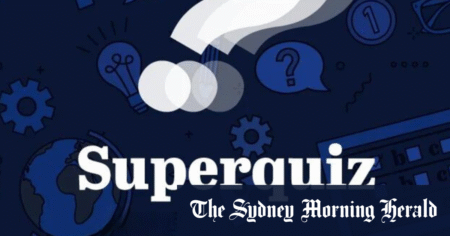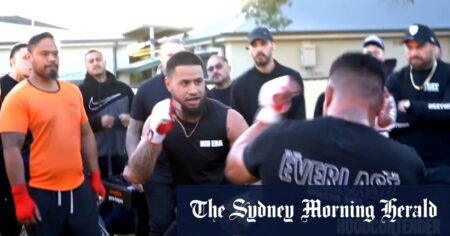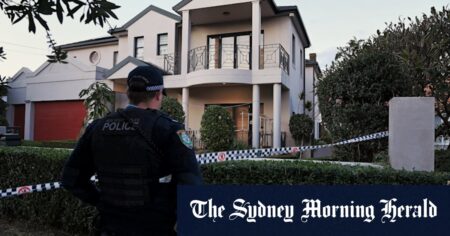The court was shown a video of Haddad eating a beef burger and saying he didn’t want to have “any beef with anyone”, after he described Hindus in 2023 as “worshippers of cows and monkeys”. Haddad said the video was designed to demonstrate his “resilience towards threats”.
(From left) Solicitor Mark Deutsch with Peter Wertheim and Robert Goot from the Executive Council of Australian Jewry arrive at Federal Court in Sydney on Wednesday.Credit: Janie Barrett
Haddad said he was trying to convey in the sermons that “what the Israeli government is doing to the people of Gaza” is “not something new”.
Asked if what he was saying was “the problem was the Jews in the seventh century and the problem is the Jews today”, Haddad replied: “Not in that general sense, no.”
He said his description of Jews as “a vile people” was a reference to the actions of the Israeli government. “I never set out to insult Jews,” he said.
He said his speeches were “taken from Islamic texts” and he was referring to “Jews of faith” rather than ethnicity, but admitted he didn’t know either personally or by reputation a person who was a Jew but not a Jew of faith.
Loading
Haddad is defending the lawsuit on a number of bases, including that the claim must fail because the sermons were delivered in private at the Al Madina Dawah Centre, where there is “no standing invitation to non-Muslims to attend”, and only published online later.
Section 18C covers acts in public that are reasonably likely “to offend, insult, humiliate or intimidate another person or a group of people”. The acts must be done because of the “race, colour or national or ethnic origin” of that other person or group.
Members of the Jewish community gave evidence earlier on Wednesday that they first became aware of Haddad’s speeches via either or both The Australian and Sky News.
Braham foreshadowed he would submit that “just about everything” at the centre was designed “for public consumption and to create, or attract, controversy”.
The sermons were published on the centre’s Facebook and Rumble accounts. Haddad’s lawyers say in written submissions there is “no evidence” that he or the centre’s incorporated association, of which he is a founder, were involved in uploading the speeches or had “any awareness of that having been done”.
However, Haddad told the court that he “knew they were being recorded”, and that they were all going to be published online. He also agreed that he was, in effect, in charge of the centre.
Haddad’s lawyers argue the sermons were not reasonably likely to offend, insult, humiliate or intimidate Jewish people in Australia. It was “only because of what appears to have been an extraordinary pursuit of Mr Haddad and the centre that any Jewish person in Australia was exposed to the speeches”, the submissions say.
The speeches were intended to provide “support and spiritual comfort to members of the Muslim community by placing the current events in Gaza in a historical religious context”, the submissions say.
Haddad’s legal team also argue an exemption in section 18D of the law applies because he acted “reasonably and in good faith” in the course of a debate in the public interest. Wertheim and Goot’s lawyers say Haddad “acted neither reasonably nor in good faith”.
The hearing before Justice Angus Stewart continues.
Start the day with a summary of the day’s most important and interesting stories, analysis and insights. Sign up for our Morning Edition newsletter.
Read the full article here

















